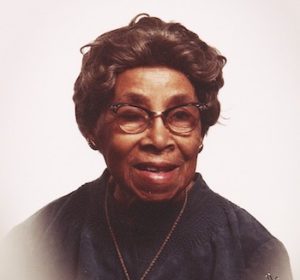
Septima Clark
Septima P. Clark was born on this date in 1898. She was a Black educator and activist in Charleston, S.C.
Septima Poinsette's mother, Victoria, was raised in Haiti, and her father, Peter, was a former slave. They shaped and influenced her fundamental values. Among the most important was a willingness to share one's gifts, and another was not to forget that there was something redeeming in everyone. Her education came from those who insisted on performance and hard work with pride.
In 1916, Poinsette received her teaching certificate from Avery Normal Institute in Charleston. Black teachers were barred from teaching in Charleston, so her first three years were spent as a staff member on John's Island, South Carolina. There, she attempted to institute adult literacy classes through the NAACP to address some of the educational inequities on Johns Island. In 1919, Poinsette returned to Avery Institute, spearheading a campaign against Charleston's exclusionary policies, overturning that law one year later.
In 1920, she married Nerie Clark, a Black Navy cook with whom she had two children; Clark's mother raised one, and the other died at birth. Shortly after, she became involved in various civic organizations and continued her education at Columbia. Carrying on the fight for Black teachers throughout the state, Clark received her B.A. from Benedict College in 1942 and her M.A. from Hampton Institute in 1945.
Although her activist efforts with the NAACP helped initiate an equal pay ruling that year, she was fired from teaching in Charleston in 1947 because she was a member of the NAACP. Unable to find work, Clark relocated to Monteagle, TN, teaching interracial adult education at the Highlander Folk School, where she formed an adult literacy program with another woman, teaching people how to fill out driver's licenses and voter registration forms and sign checks. Guided by her belief that education and Black equality were integral subjects, Clark devised a curriculum that promoted voter registration and empowered people to solve their issues through social activism when she became director. One of her students was Rosa Parks, who helped start the Montgomery Bus boycott.
This was capped by her founding of the first "Citizenship School," which was created successfully on Johns Island in 1957. With links to Highlander Folk School constantly being disrupted by the Tennessee legislature and finally resulting in the revocation of its charter, in 1961, the citizenship program was transferred to the Southern Christian Leadership Conference (SCLC). By 1970, over 800 citizenship schools had graduated over 100,00 African Americans. They served as an essential grassroots base for the civil rights movement throughout the Deep South.
Her autobiography, Echo in My Soul, was published in 1962. She was the keynote speaker at the first convention of the National Organization of Women (NOW), speaking on "The Need of Women Challenging Male Dominance." Septima P. Clark received many awards from many sources. In 1987, she was given the American Book Award for her second biography, "Ready from Within: Septima Clark and the Civil Rights Movement." She died later that year in Charleston.